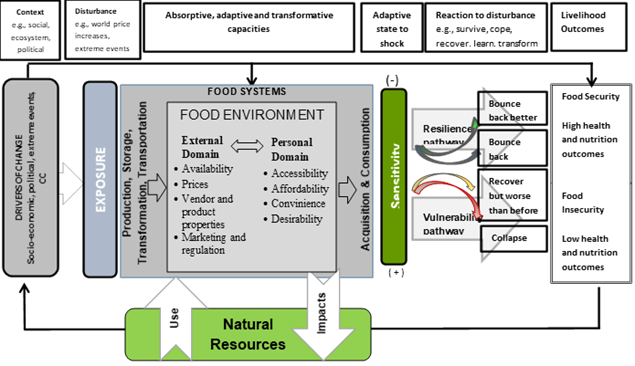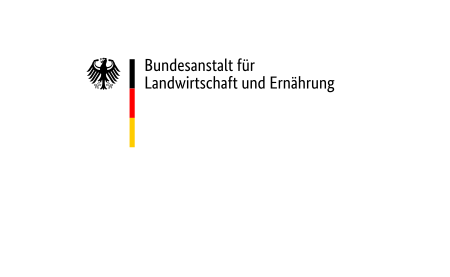The FEMOZ project aims at strengthening the resilience of rural food environments in the context of disaster risk and climate Change in Mozambique. The “Food Environment” mediates the interactions between consumers and markets and influences consumer’s decisions.
The FEMOZ food environment conceptual framework consists of a external domain (including the dimensions of food availability, prices, markets and product’s properties, marketing and regulation), as well as a personal domain (including the dimensions of accessibility, affordability, convenience and desirability), both considered in the context of disaster risks and climate change (CC). FEMOZ objectives address the measurement of these different dimensions of the food environment in the different target regions of the project, contributing to evaluate how potential rural development interventions for increasing agricultural production, rising incomes, or for reducing food prices, would ultimately and effectively reflect on population’s diets and nutrition. It targets also the creation of change in the food environment through awareness and knowledge formation around good practices in the different dimensions of the food environment and further changes in behaviour, practices and performances for improving food security and nutrition (FSN). For this purpose, FEMOZ proposes the establishment of an innovative three-tier long-term R&D infrastructure, consisting of: i) “Living Lab”, ii) “Science-Policy-Society Interface (SPSI)”, and iii) a “Capacity Development Hub (CDH)”. With this approach, FEMOZ ensures that co-research in the Living Lab on the different dimensions of the food environment, is up-scaled, out-scaled, and deep-scaled from the outset. The project will translate research findings into action, capacitating stakeholders, and disseminating best practices for enhancing food environments in targeted rural settings.

Project’s food environments conceptual framework
